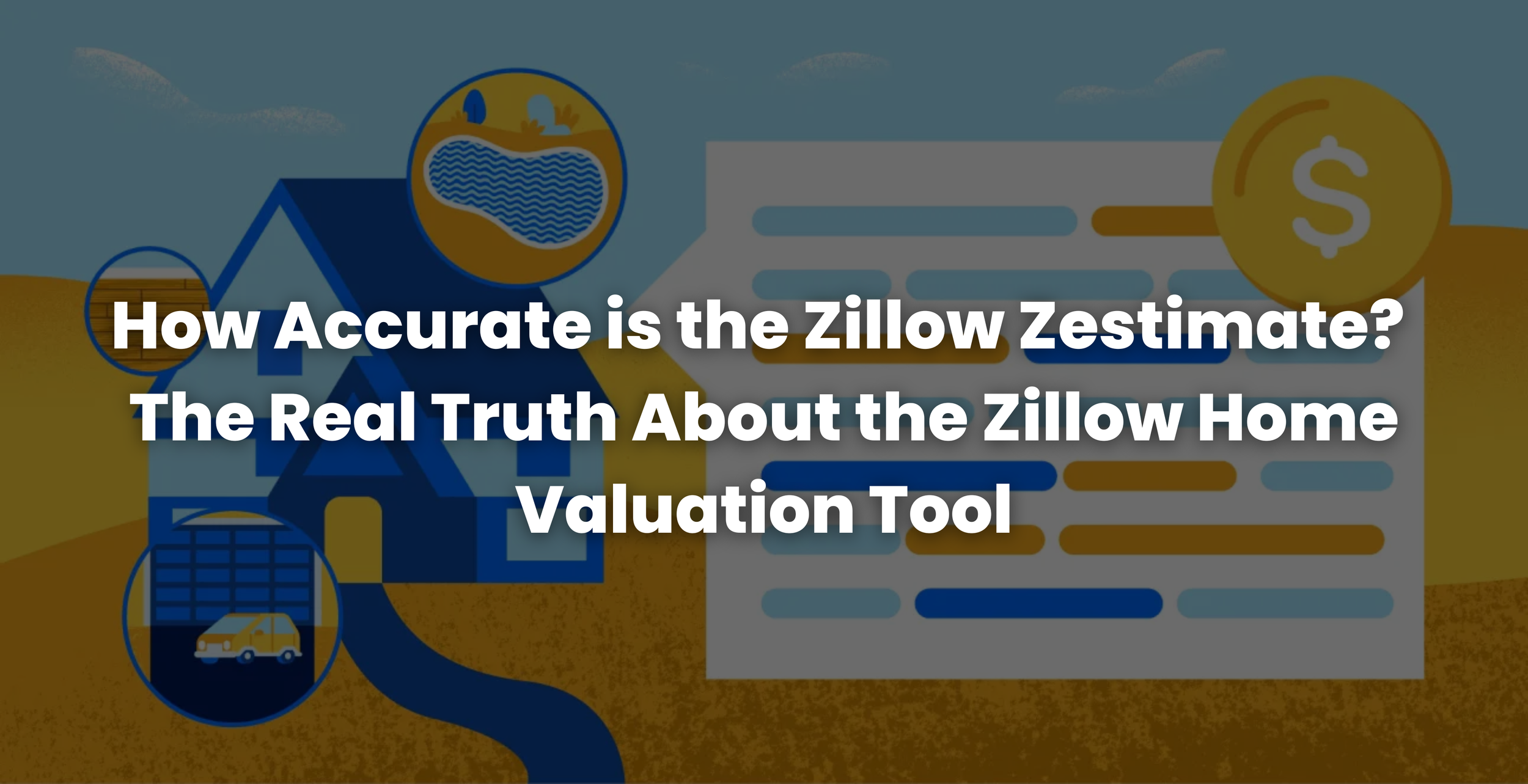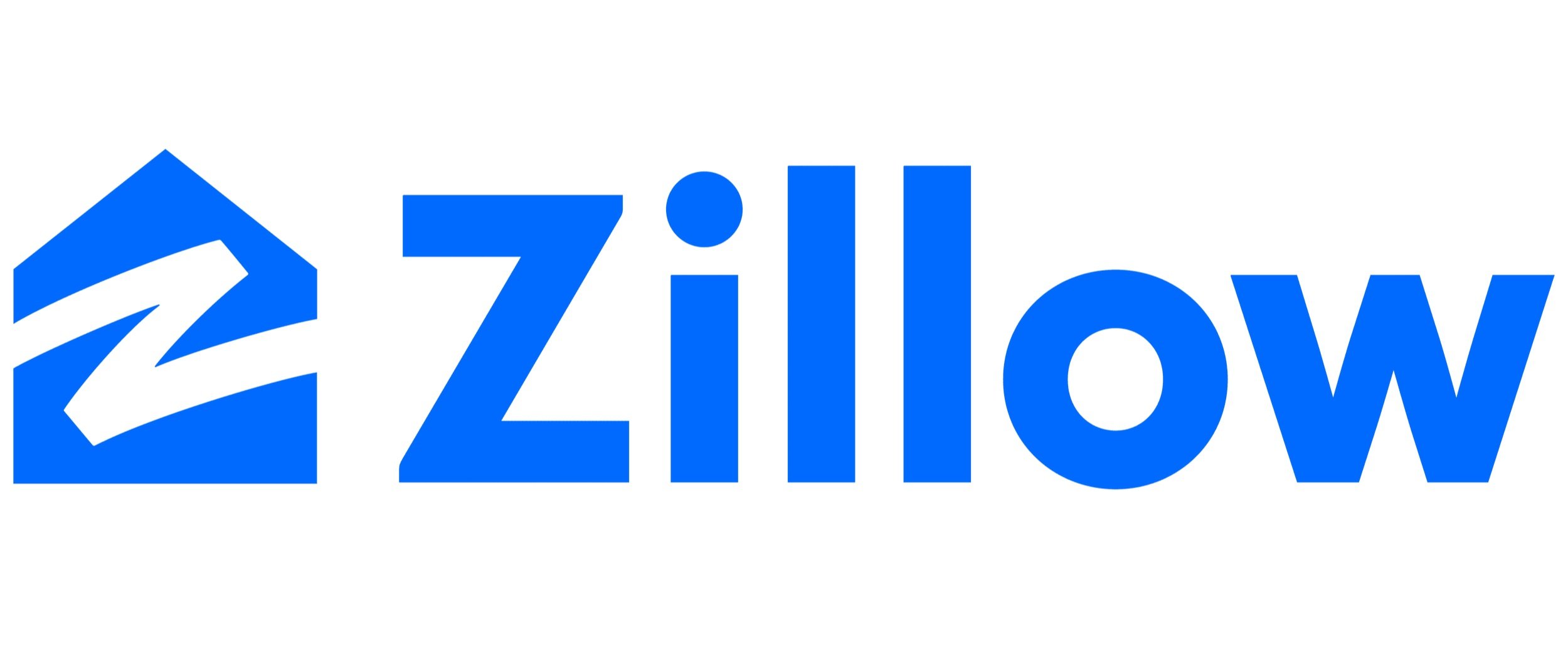When navigating the real estate market, understanding property values is essential for both buyers and sellers. Many turn to Zillow, one of the most popular online real estate platforms, for its widely used feature known as the Zillow Zestimate. The Zillow Zestimate tools is an algorithm-generated home valuation tool that claims to provide a quick estimate of a property's worth based on various data points. However, many wonder, how accurate is the Zillow Zestimate? This question is crucial for anyone considering a real estate transaction.
In this article, we dive deep into the Zillow Zestimate accuracy of Zillow home estimates and explore how reliable the Zestimate truly is. Moreover, we will examine what factors influence Zestimate accuracy, why it's essential to consider the limitations of these home valuations, and how they compare to professional appraisals. By the end, you will have a clearer understanding of the Zillow house valuation process and will be better equipped to assess whether the Zestimate can meet your real estate needs. So, whether you're buying, selling, or simply interested in finding an answer to the question, “how accurate are Zestimates?” this comprehensive Zestimate guide aims to clarify the complexities behind Zillow's home estimates. In addition, it’ll provide you with the insights you need to make informed decisions.
What is Zillow Zestimate, and What’s the Purpose of the Zillow Zestimate Tool?
Zillow Zestimate, launched in 2006, is designed to give an instant property value estimate based on a proprietary algorithm that processes millions of data points. Further, drawing on data from tax records, recent sales, and other public records, the Zestimate serves as a starting point for home valuations, offering a rough idea of a property’s worth without the need for a formal appraisal.
The ease of access to Zestimates has made them highly popular among homebuyers, sellers, and current owners curious about their property’s value. However, understanding “how accurate is a Zillow Zestimate” requires diving deeper into the factors that affect its calculations and limitations.
How Zillow’s Zestimate is Calculated - Key Data Points Used to Calculate Home Estimates with Zillow Zestimate
To produce Zestimates, Zillow utilizes various types of data that are weighted in its algorithm, including:
Public Records: Tax assessments, sale history, and county records.
Comparables (Comps): Recent sales of similar homes in nearby areas.
Market Trends: Broader housing market trends within a region.
Home Characteristics: The size, number of rooms, age, and other structural details of the home.
The Zestimate algorithm compares these data points to produce an approximate value based on past trends. Also, it may adjust its estimate over time as more sales data becomes available. However, without factoring in the unique aspects of individual properties, the Zestimate accuracy remains limited, especially in diverse or rural markets.
How Accurate are Zestimates Compared to Other Valuation Methods?
With an overview of what the Zillow Zestimate is and how the Zillow Zestimate is calculated, let’s now dive a little deeper and answer the question: “How accurate are Zestimates compared to other home valuation methods?”
Zestimate Accuracy Statistics by Zillow
Zillow’s self-reported statistics highlight its Zestimate accuracy for properties in different locations:
For Homes on the Market: In some cities, Zillow claims that Zestimates are within 2-5% of the final sales price 80% of the time.
For Off-Market Homes: Accuracy drops since there are fewer comparable, recent transactions for properties not actively listed.
While Zillow emphasizes a high degree of Zestimate accuracy in urban areas, the Zestimate can show greater discrepancies in less dense markets, where recent sales data is limited. As a result, the Zillow house valuation often serves as a good starting point but not a final figure.
Zestimate vs. Appraisal: How Accurate is Zillow Compared to Professional Appraisers?
A Zestimate is based on automated data, while an appraisal is conducted by a certified professional who physically inspects the home and considers local market conditions, property conditions, and unique property attributes.
Professional Appraisals: Lenders require appraisals when issuing mortgages because they offer a highly reliable valuation. So, what happens is that an appraiser visits the property, evaluates the current condition, and adjusts for recent improvements.
Zestimate: Doesn’t account for the physical state of the home or the most recent improvements. For example, a Zestimate might undervalue a newly renovated kitchen or overlook high-end finishes. As a result, it can lead to a valuation that could be significantly off from a professional appraisal.
For these reasons, homebuyers and sellers should not rely solely on Zillow Zestimates for decisions; instead, consider a professional appraisal or market analysis for the most accurate valuation.
Get a professional appraisal using our Free Home Valuation tool today!
Factors Affecting Zestimate Accuracy
As we now understand the difference between a Zestimate vs. appraisal, let’s look at important factors affecting the Zillow Zestimate accuracy!
Why the Zestimate’s Accuracy Varies
Location Data Availability: Zestimates are generally more accurate in metropolitan areas due to a wealth of recent sales data. Moreover, rural properties or areas with unique homes present a challenge to the Zestimate algorithm, as these areas have fewer recent comparables.
Market Conditions: Rapidly changing markets can cause Zestimate values to lag, as Zillow’s estimates rely on historical data. As a result, this lag can lead to discrepancies between a Zestimate and the actual market value, especially in volatile markets.
Unique Features of a Property: Zillow’s algorithm doesn’t capture individual property details like recent renovations, structural quality, custom design features, or landscaping, which can all significantly influence a home’s value.
Common Misconceptions About Zestimate Accuracy
Myth: Zestimate Provides an Exact Home Value
One of the most common misconceptions is that a Zestimate is a definitive home value, equivalent to what a buyer would pay or a lender would approve. However, in reality, the Zestimate is only an approximation. So, while Zillow has made strides to improve accuracy, it still has limitations, especially for unique properties.
Myth: Zestimates Update in Real-Time
Zillow Zestimate updates periodically based on new data. However, these updates are not always real-time. For example, if a homeowner adds a new deck or renovates the interior, the Zestimate won’t necessarily reflect this added value unless public records are updated. Thus, the Zestimate should be viewed as a periodic estimate rather than an immediate reflection of the home’s worth.
The Role of Zestimates in the Buying Process
Zillow Zestimate Reliability - Can Buyers Rely on Zestimate for Purchase Decisions?
Homebuyers often look to Zestimates to guide their decision-making process, but over-relying on this tool can be risky. Furthermore, a Zestimate might overestimate or underestimate a property’s value by thousands of dollars, leading buyers to pay too much or pass on an undervalued property.
Instead, buyers should work with a real estate agent who can provide a Comparative Market Analysis (CMA) and factor in the local market and individual property characteristics. This combined approach can help ensure that the buyer makes an informed purchase without over-relying on an algorithm-based estimate.
Zestimates and Negotiation: How Reliable is Zestimate as a Benchmark?
Some buyers attempt to use the Zestimate in negotiations, arguing that a home listed above its Zestimate value is overpriced. However, real estate agents and appraisers caution against this tactic, as the Zestimate is just one of many data points. Also, the seller may have legitimate reasons to price above the Zestimate, such as recent upgrades or a desirable location, which the algorithm might not fully appreciate.
Using Zestimate to Sell Your Home
You now have a pretty good idea of Zestimate reliability. As such, you might wonder, “Can I list my house based on the Zillow Zestimate?” If so, let’s dive into the topic of listing a house based on the Zillow Zestimate and if it’s a wise choice!
Setting a Listing Price Based on Zestimate: Is it Wise?
Sellers may look to Zestimates as a quick gauge of their home’s value. However, using it to set a listing price based on Zillow Zestimate can backfire. Why so? Well, the Zestimate might miss the mark on unique home features or recent renovations, causing homeowners to undervalue their property. So, relying too heavily on Zestimate could lead to a lower sale price than the home might otherwise achieve.
To set the most accurate listing price, homeowners should consult a real estate agent for a CMA, which evaluates similar properties on the market and incorporates the agent’s expertise in local market trends.
Updating Your Zestimate: Steps Homeowners Can Take to Improve Zestimate Accuracy
Homeowners can improve the Zestimate accuracy by ensuring Zillow’s data for their property is up-to-date. This includes:
Claiming the Property: Homeowners can “claim” their home on Zillow, allowing them to edit information and provide updates.
Correcting Property Details: Ensuring details such as square footage, room count, and lot size are correct can lead to a more accurate Zestimate.
Reporting Renovations: Zillow allows users to report home improvements, which may influence the Zestimate. Now, while Zillow doesn’t account for all upgrades, updating major changes may improve accuracy.
Zillow Zestimate Accuracy - Evaluating Zestimate’s Usefulness in Different Housing Markets
With a better understanding of Zillow Zestimates, let’s explore the Zillow Zestimate accuracy in the different markets, such as urban and rural areas!
Zillow’s Zestimate Accuracy in Urban vs. Rural Markets
In major urban areas, such as New York City, San Francisco, or Chicago, Zestimates are typically more accurate because of high sales volumes and comprehensive data. However, in rural or less densely populated markets, the accuracy declines. Also, fewer transactions in these regions result in less data for Zillow to analyze. In turn, it can lead to valuations that are significantly off-mark.
Zestimate Case Studies: Examining Zestimate Accuracy in Real Markets
Urban Market Example: In high-turnover cities like Seattle, Zestimates are accurate - most of the time - within 2-3% of the sale price, providing a close approximation of a home’s market value.
Rural Market Example: In rural towns where unique homes may lack comparable data, Zestimate accuracy can vary by as much as 10-15%, making it less reliable in these settings.
Suburban Sprawl: Areas experiencing rapid suburban growth (e.g., Florida real estate), often see larger Zestimate variances, as quickly increasing demand can outpace Zestimate updates.
Pros and Cons of Zillow’s Zestimate
Advantages of the Zillow Zestimate
Convenient and Free: Anyone can access a Zestimate with an internet connection, making it a valuable tool for getting a general idea of home prices.
Good Starting Point: Zestimates offer a baseline for homeowners who want to track property value trends or compare different homes.
Broad Data Sources: Zillow pulls from numerous data points, which improves its baseline accuracy.
Limitations of the Zillow Zestimate
Limited Detail on Unique Properties: The algorithm struggles with properties that don’t fit the mold of their surrounding homes, such as historic buildings or highly customized homes.
Market Sensitivity: Zestimate accuracy can lag in volatile markets where home values change rapidly.
No Substitute for Appraisals: A Zestimate should never be used as a replacement for a formal appraisal or market analysis by a real estate professional.
Conclusion: How Should You Use the Zillow Zestimate?
The Zillow Zestimate is a useful starting point for estimating a home’s value, but it’s not a definitive answer. Moreover, by understanding its limitations, homeowners and buyers can use the Zestimate in conjunction with other resources. These include professional appraisals, CMAs, and local real estate insights to get a fuller picture of a property’s value. So, whether you’re buying, selling, or simply curious, taking the Zestimate with a grain of caution and consulting with a professional are your best bets for making sound real estate decisions.
Summary: How Accurate is the Zillow Zestimate?
The Zillow Zestimate tool provides homeowners and buyers with a quick way to gauge property values by leveraging a proprietary algorithm that analyzes various data points, including public records and recent sales. Furthermore, while the Zestimate offers a helpful starting point, the ZIllow accuracy varies significantly based on factors such as location, market conditions, and unique property features. Moreover, in urban areas, Zillow home estimates can be quite reliable, often within 2-5% of actual sale prices. However, in rural markets or for unique properties, discrepancies can reach as high as 10-15%.
Also, with the Zillow Zestimate tools is popular, it’s not surprising many ask, “How accurate is the Zestimate?” That said, homebuyers and sellers should not rely solely on the Zestimate. Instead, they should complement this information with professional appraisals and Comparative Market Analyses (CMAs) from real estate agents. While how accurate are Zestimates can provide insights, understanding their limitations is crucial for making informed real estate decisions. So, by combining Zillow's data with expert insights, buyers and sellers can navigate the real estate market more effectively and confidently. Ultimately, knowing the answer to the “how reliable is the Zestimate?” question helps ensure you make sound investment choices.
If you enjoyed this article, make sure to check out other content on our blog. For example, you can read up on the 2025 Florida real estate market forecast, what the best places to live in Ocala, FL are, and discover the Horse Capital of the World! If the latter interests you, perhaps you’re also interested in exploring horse farms for sale in Ocala, Florida? If so, make sure to check out our Florida Equestrian Real Estate collection. We have numerous Ocala real estate agents who specialize not only in finding Ocala homes for sale or Ocala luxury homes but finding a dream property for equine enthusiasts!









![Buyers, Here's Your Guide to Make Your Homeownership Dream Alive in 2025 [PART 2]](https://images.squarespace-cdn.com/content/v1/623a222daeb6754faf8aa51a/1735325561607-9NHFOSV6OSDG8UOI40DB/banner-big.png?format=200w)
![Buyers, Here's Your Guide to Make Your Homeownership Dream Alive in 2025 [PART 1]](https://images.squarespace-cdn.com/content/v1/623a222daeb6754faf8aa51a/1735251615994-X1FZ3PPJ2FR0NUECZZ91/buyers%252c%2Bhere%25e2%2580%2599s%2Byour%2Bguide%2Bto%2Bmake%2Byour%2Bhomeownership%2Bdream%2Balive%2Bin%2B2025%2Bbg.png?format=200w)



